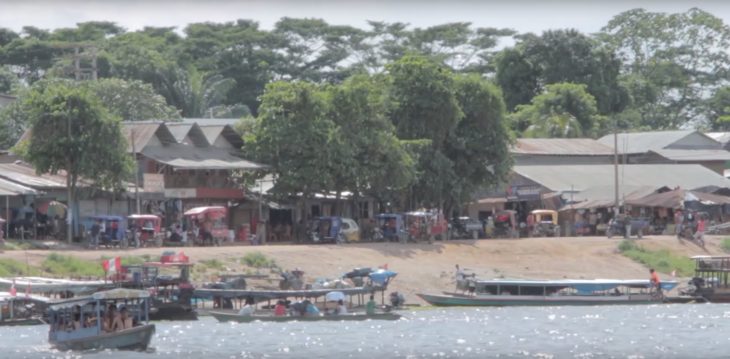The Decentralisation Secretariat of the Presidency of the Council of Ministers, with the support of the EUROsociAL+ Programme and the German Cooperation GIZ, organised an International Workshop entitled “Decentralisation for the Citizen"

This International Workshop was organised by the Presidency of the Council of Ministers in close coordination with the Congress of the Republic and the National Assembly of Regional Governments, as a clear manifestation of the will to combine efforts towards the common goal of decentralisation and the territorial development of the country. This workshop was supported by the EUROsociAL+ Programme, as an addition to other support that the European Commission has already been providing to the “decentralisation and territorial development” process currently being promoted by the Government of Peru.
The EUROsociAL+ Programme Action this activity is classified under is, following recommendations made by the OECD to Peru, “supporting the creation of the Regional Development Agencies” in the country and understanding the concept of “Agency” as a space for coordination and articulation in the territory where sectoral and territorial interests converge.
The main objective of the Workshop was to present the work that the Multisector and Intergovernmental Commission for the Strengthening of Decentralisation has carried out since its installation on 7th February 2018.
This Multisector Commission was created by Supreme Resolution No. 026-2018-PCM, “dependent on the Presidency of the Council of Ministers, with the purpose of formulating a proposal for articulated intersectoral and intergovernmental management guidelines aimed at promoting the strengthening of decentralisation and a 2018-2021 integrated Actions Plan, within the framework of the Decentralisation process”.
Among others, the Commission is entrusted with the following function: “Preparing a technical report that identifies the elements and/or components of intergovernmental coordination which affect the main processes in the adequate provision of central public services in the sectors of drinking water and sanitation, education, health and transport following a results-based approach and including territorial diversity”.
At the Workshop, the reports corresponding to each one of the mentioned sectors were presented, a space was then provided to discuss different points of view regarding the reports with international experts, who came from Colombian, Spanish and European Commission public institutions, whose participation was funded by EUROsociAL+.
Also, within the framework of the Workshop, the Annual Evaluation Report on the Decentralisation Process was presented. The report was prepared by the Congress of the Republic for the period 2017- 2018.
The Workshop had significant political support, since it was inaugurated by the president of the Republic of Peru, Martín Vizcarra Cornejo, and closed by the president of the Council of Ministers, César Villanueva Arévalo. It was also attended by Carlos Oliva Neyr, minister of economy and finance, within the framework of the round table session “Working Group on Expenditure Allocation by Competition”, and with the presence of the Minister of the Environment, the Minister of Health, the Minister of Education, and the Minister of Housing, Construction and Sanitation. Several congressmen also participated in the Workshop, as well as several regional governors and municipal authorities.
Área de políticas de gobernanza democrática. Democratic governance area / EUROsociAL+



